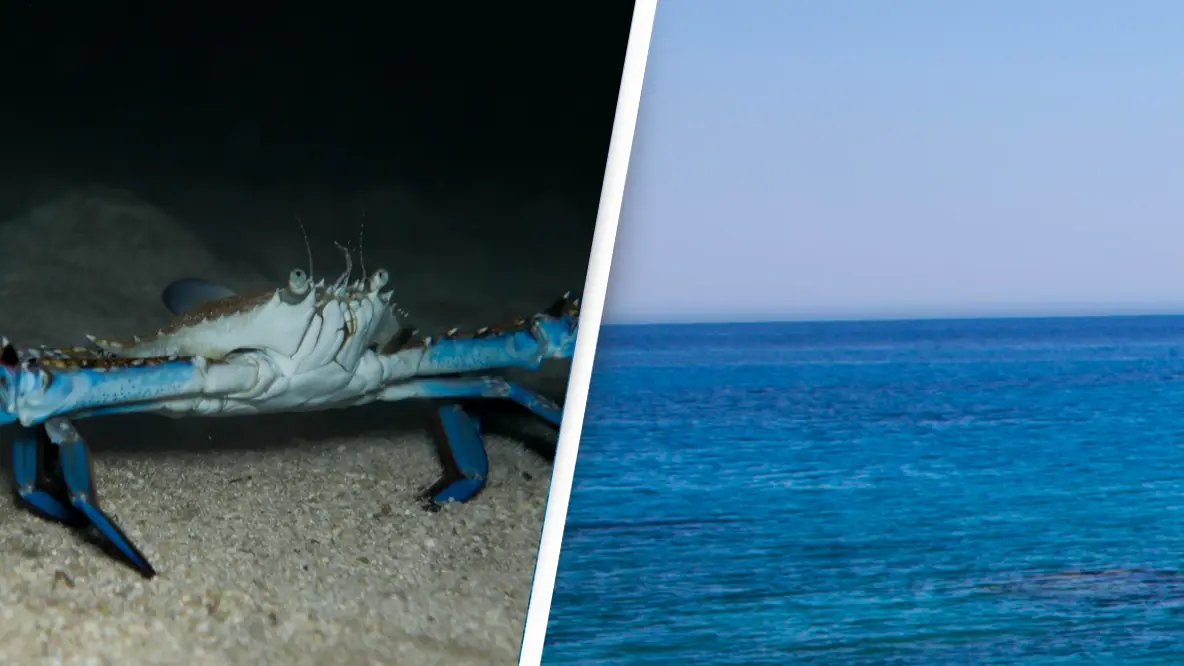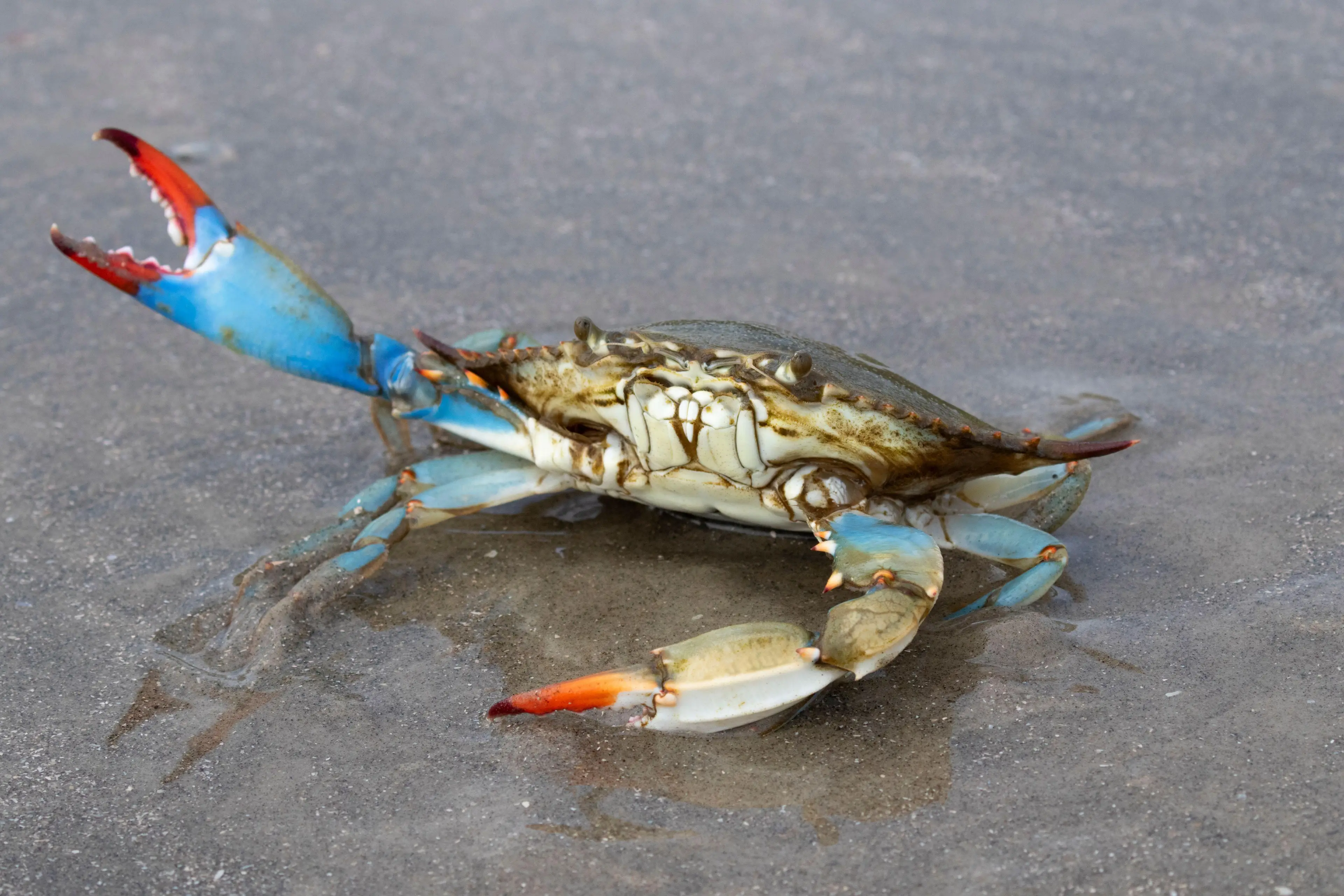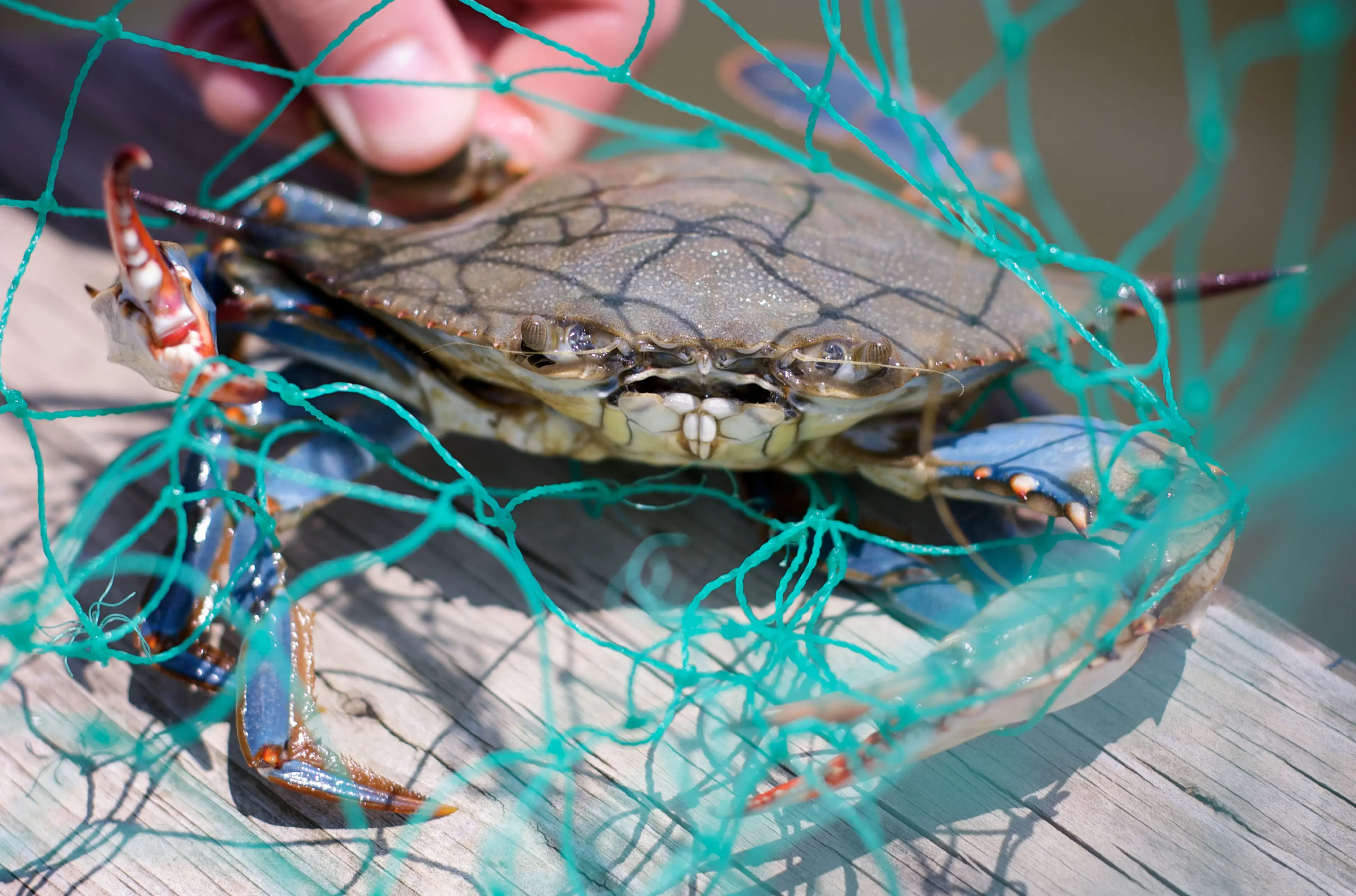
The blue crab is one of nearly 1,000 alien (non-native) species to have set up their home in the Mediterranean Sea.
Known for their feistiness (blue crabs often snip their way through fishing nets and pinch fishermen), the aqua-coloured crustaceans left their natural predators in their native Atlantic waters, so have zipped to the top of the food chain.
This is posing big problems for the local ecosystem, seeing as the blue crabs pretty much devour everything in their path.

Advert
The blue crabs are thought to have hitched a ride into the Mediterranean Sea on shipping vessels.
When shipping vessels leave far-flung ports, they have to stabilise their load by sucking up water, inevitably drawing in various microorganisms and eggs which are then released back into the water when a ship reaches its new destination.
Experts reckon this is how blue crabs found their way into the Mediterranean, where the crustaceans’ population quickly flourished.
Speaking to the BBC this month, Hakim Gribaa, a fisherman on the Tunisian island of Djerba, described the ‘panic’ he felt when he first started noticing how many blue crabs were in the water, explaining: “It was panic stations. The crab represented almost 70 percent of my fishing catches and I did not know what to do with it."
Gribaa also said that the blue crabs were quickly nicknamed Daesh - the Arabic acronym for the Islamic State - thanks to their aggressive nature.

Astonishingly, blue crabs can reproduce as much as four times a year and females have been known to have 100,000-strong litters, posing a serious problem for local fishermen.
While the blue crabs’ presence did throw fishermen off guard at first, the BBC notes blue crab is ‘now one of the region’s most sought-after seafoods’.
However, it’s a different story over in France, where fisherman Yves Rougie - who once used to earn his living by catching bountiful amounts of eels in the Canet-Saint-Nazaire lake - now only brings up three or four eels per net cast thanks to blue crabs.
Rougie told Reuters: “Before, we were catching 10-15 kilos, sometimes 40 to 50 kilos of eels per trip.”
While blue crabs can be sold for up to $90 per kg in the USA, in France they only fetch around €2 per kg.
Rougie normally racks up a catch of around 450 kg per fishing trip, but can only sell 50kg of that, with the rest considered worthless and chucked away.
If you have a story you want to tell, send it to UNILAD via [email protected]
Topics: Animals, Environment